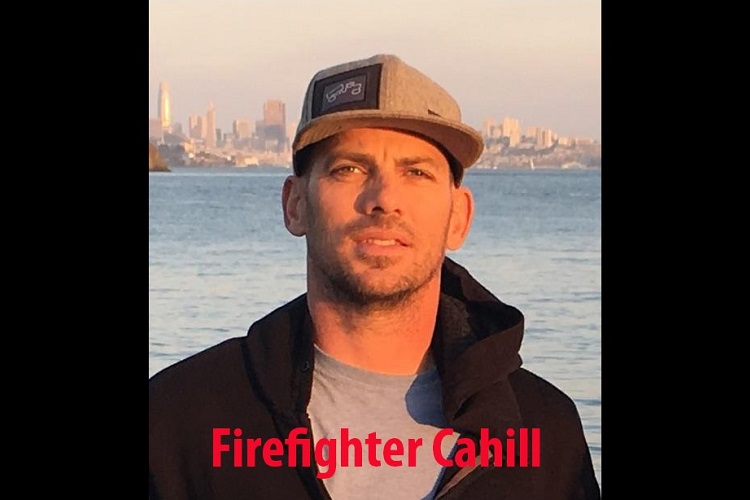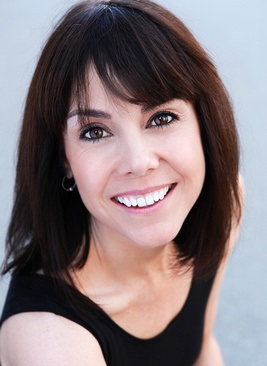
By Shannon McQuaide

Recently, I had a conversation with Burke Cahill of the Davis (CA) Fire Department. We talked about the impact of sleep deprivation on mental health. Burke has been rehabbing an ACL injury since January and, for the first time in 20 years, has been getting regular sleep. Prior to his injury, we met at his station and talked about yoga and meditation. Within a few months of our initial meeting, Burke sustained his injury. Although I didn’t know him well, I felt concern for him. I had heard stories and read statistics about firefighters who become depressed while rehabbing slow-healing injuries. And, just a few years back, my brother-in-law, Mike, who is a San Jose firefighter was off duty for more than a year, first for a failed hip scope followed by a successful hip replacement. Being off duty for all those months was stressful and put a lot of strain on Mike and his family.
I decided to check in with Burke at least once a month through text, and if he wanted I would offer a few yoga poses to support his rehabilitation. By late spring, Burke texted that he had started Pilates and his body was doing much better. A month later, I asked if he would be interested in joining our e-mail group to receive meditation practices he could do at home and he said “yes!” As I continued to check in with him, I noticed that his texts were sounding more and more upbeat. This is not what I had expected, so I texted, “Burke, what are you doing that is helping you stay so upbeat?” His response, “Sleep is King.”
Now, this I understood. I am an Olympic sleeper and couldn’t imagine a career where my sleep was regularly interrupted. For you, however, this not the case, and soon Burke will be back on a Kelly schedule at Davis Fire where his sleep will be dictated by call volume. When we spoke over the phone, I learned how Burke planned to maintain his new state of wellness after returning to a shift schedule. During our conversation, Burke also shared how getting regular sleep has transformed his health and changed his attitude toward working overtime, maximizing his retirement, and initiating more candid conversations about the mental health strain on career firefighters.
Overtime
Budget cuts enacted by the City of Davis paved the way for Davis firefighters to work overtime. Burke and his family became conditioned and accustomed to accepting most overtime shifts offered. Annually, this amounted to 75 to 80 extra shifts. His rationale? More overtime meant more money for his family; Burke is married and has two children, 7 and 9 years old. And if Burke made more money for his family, then things would naturally be better, right? It’s not that simple.
Davis firefighters work a Kelly schedule and, according to Burke, shift schedules are designed for recovery (although moving to a 2s & 4s schedule is something that Burke has lobbied for). Working all those overtime shifts left little time for recovery. Burke felt extremely sleep deprived; he was temperamental and irritable with his wife and kids, and it undermined his health. His family may have had more things but in exchange for an exhausted dad and husband. Moving forward, he plans to work overtime when it’s mandatory, recognizing that his health and happiness are way more valuable to his family.
Some additional lifestyle shifts to support quality sleep recommended by sleep experts include putting your phone in airplane mode when you sleep or leaving it in another room. Electromagnetic frequencies (EMFs) emitted by your phone interrupt REM sleep. Another recommendation is to not physically look at the screen before bed. The blue light emitted by your phone affects your brain. Many firefighters have shared with me that before learning about yoga and breath work they would jump on their phones after a night call. Before they knew it, an hour or two would pass by and it would be 5:00 am before they were able to fall back asleep. Now they use mindful breathing practices to relax their bodies. And even if they don’t follow asleep immediately, they are training their brains for a better sleep over time.
Retirement
Before the injury, Burke had planned to work until he turned 53 and maximize his pension. At 45 years of age, that would mean another 8 years of service instead of the 5 years needed to reach age 50. What he has learned is that the salary he currently earns provides for his families’ needs. Without an opportunity to work overtime, Burke and his family has had to organize their life to make his fixed income work. “I am much more valuable to my family as a happy and healthy person,” Burke has realized. This requires a balanced attitude toward work, rather than the constant striving for more stuff that is a hallmark of our capitalistic culture.
Peer Support
Priority number one when Burke returns to the firehouse is to talk openly about the role of sleep and mental health. “Not getting enough sleep never bothered me until I turned 40,” Burke said. “Then I found I couldn’t sleep even when I was at home. I would wake up sometimes five times a night. I think we need to talk more about the physical and mental health toll of sleep deprivation. And shift the attitude in the culture that stigmatizes taking naps.” It only makes sense that if you are up all night taking calls, you should take advantage of catching up on sleep when the call volume is slower. Sleep leads to clarity of thinking, stamina, and stress resiliency.
Burke has a reputation for candor. Stepping into a more official peer support role and promoting quality sleep at Davis Fire will not be a stretch for him. Not too long ago, there was a period of time that lasted for about a year when doctors were entertaining the idea that Burke’s unexplained muscle twitches were related to a neurological disorder. They had suggested he might be suffering from Multiple Sclerosis, Lou Gehrig’s disease, or other complex neurological disorders. It was a dark and anxious time for Burke that he survived by talking openly about the looming diagnosis and what it would mean for his career, his family, and his future. He talked about his depression and the anxiety that accompanied uncertainty. He talked with not only his crew members but also the many firefighter friends he has at other departments. Everyone he talked with thanked him for being open and candid about his experience. It turns out that the unexplained muscle twitches were related to a back injury. And through Pilates exercises that decompress and lengthen the spine, Burke is able to manage his symptoms and pain.
When I asked Burke about his aspiration upon returning to the firehouse, he expressed a desire to expose his department to cold immersion therapy. This is a type of conditioning codified by Wim Hof, The Ice Man. Wim Hof Therapy uses cold exposure and breathing techniques to develop strength, commitment, and greater levels of health and well-being. He is also interested in yoga and mindfulness practice to support mental health. Ultimately, he is looking forward to getting back to work!
 Shannon McQuaide is a registered yoga instructor with Yoga Alliance and the founder of the FireFLEX YogaTM program. FireFLEX Yoga was developed through her work with the San Jose (CA) Fire Department, where she continues to lead FireFLEX Yoga classes. She is a certified functional movement trainer and has a master of arts degree in leadership and psychology. Shannon@fireflexyoga.com http://www.fireflexyoga.com.
Shannon McQuaide is a registered yoga instructor with Yoga Alliance and the founder of the FireFLEX YogaTM program. FireFLEX Yoga was developed through her work with the San Jose (CA) Fire Department, where she continues to lead FireFLEX Yoga classes. She is a certified functional movement trainer and has a master of arts degree in leadership and psychology. Shannon@fireflexyoga.com http://www.fireflexyoga.com.

